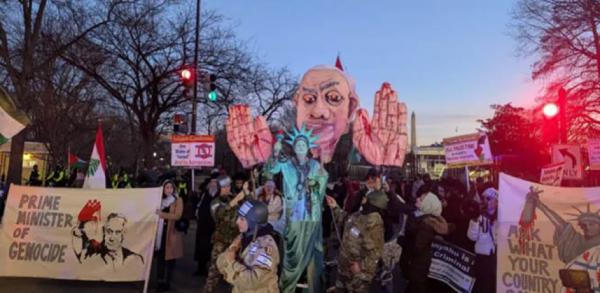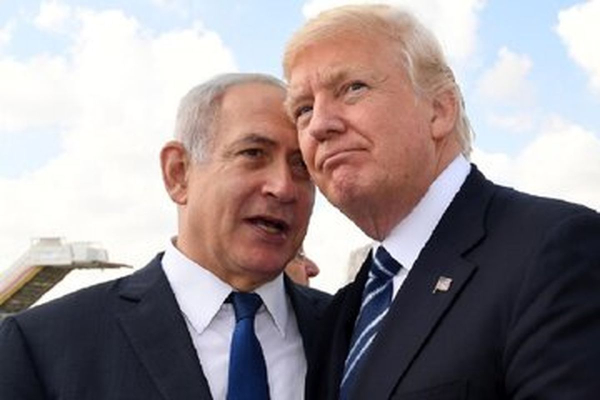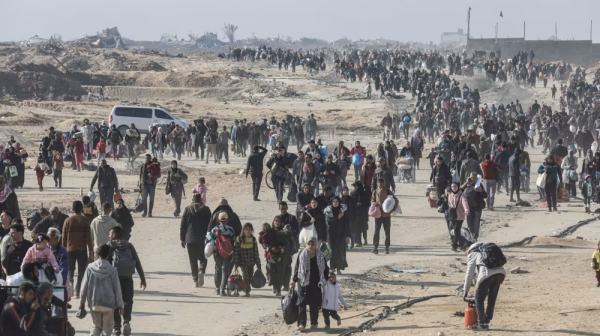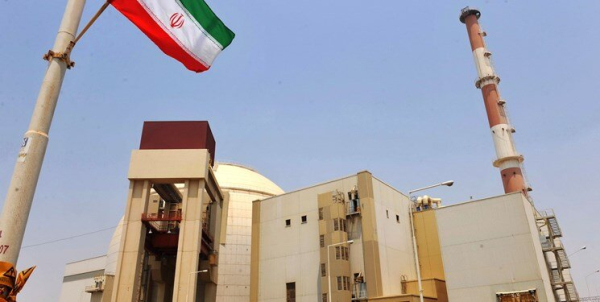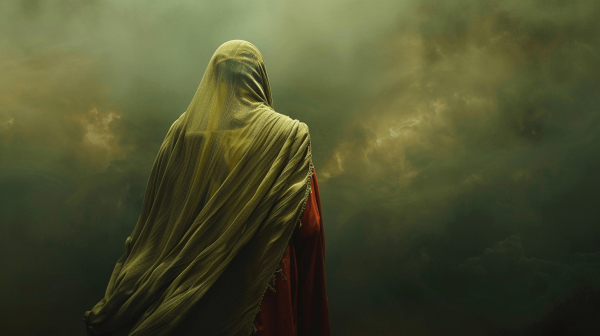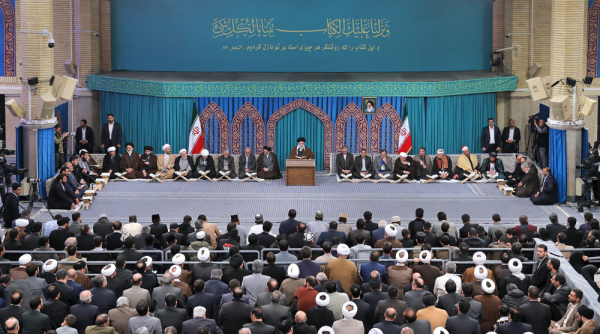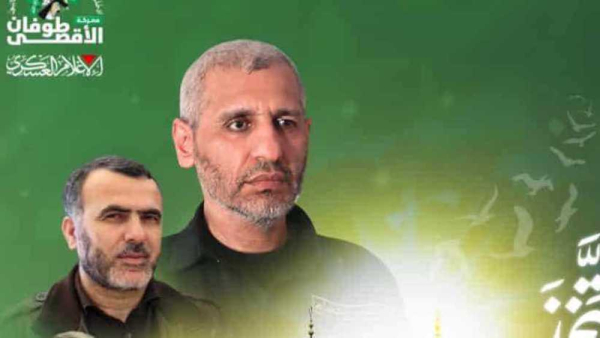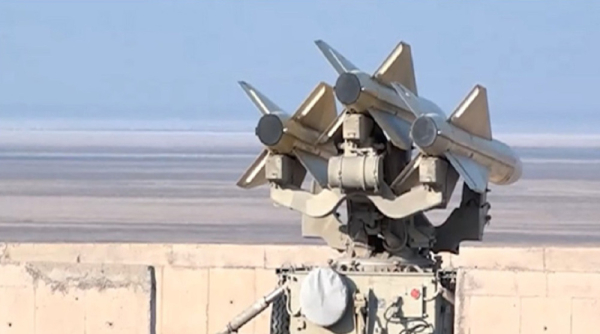zarezadeh
‘Gaza is not for sale’: Americans take to streets after Trump says US will ‘own’ Gaza Strip
Americans have taken to the streets in Washington, D.C., protesting President Donald Trump’s scheme to take "long-term ownership" of the Gaza Strip.
“Gaza Strip is not for sale,” the protesters shouted on the city’s streets on Wednesday.
Speaking at the White House on Tuesday alongside Israeli prime minister Benjamin Netanyahu, Trump had claimed that the United States would oversee clearing up of destroyed buildings, removing of unexploded ordnance, and “resettling” of Palestinians elsewhere.
"The US will take over the Gaza Strip, and we will do a job with it too. We’ll own it," he had purported.
‘Deploying American troops to Gaza’
Trump’s announcement came after the Israeli regime failed to realize its objective of forcing Gaza’s entire population to leave for neighboring Egypt, despite taking the coastal sliver under a war of genocide for over 15 months, during which the regime killed way upwards of 61,000 Palestinians, mostly women and children.
Despite offering few details on how the scheme would be implemented, Trump suggested that displaced Palestinians could be sent to "other countries of interest with humanitarian hearts."
He also left open the possibility of deploying American troops in Gaza, stating, "If it’s necessary, we’ll do that."
‘New Riviera’
Trump predicted the war-ravaged Gaza Strip, home to more than two million Palestinians, could become “the Riviera” of the West Asia as he announced his plan to take control of it.
"The Riviera of the Middle East. This could be something that could be so magnificent," Trump said as he again voiced hopes that Palestinians could be removed from Gaza, and said the United States would redevelop the territory.
‘Recipe for chaos’
The so-called plan, which Trump described as a "long-term ownership position," was met with immediate condemnation from Palestinian groups.
The Gaza-based Palestinian resistance movement Hamas called it a "recipe for chaos and tension in the region" and vowed that "our people in the Gaza Strip will not allow these plans to pass."
The group’s denouncement came amid predictions that the proposal could escalate tensions in the region and spark new waves of resistance across the Palestinian territories and beyond.
Some regional states, including Saudi Arabia, likewise firmly rejected any attempt to displace Palestinians, citing the Palestinian nation’s demand for establishment of their own independent state.
Trump’s comments also drew criticism from various activists and experts. Omar Baddar, a political analyst, slammed the announcement, saying, "He’s essentially declaring the destruction of Palestinian society and the scattering of its people."
American congresswoman Rashida Tlaib called out Trump for "openly calling for ethnic cleansing."
International law experts and human rights organizations have, meanwhile, raised concerns over the legality of Trump's proposal, warning that forced displacement and foreign occupation of Gaza would violate numerous international treaties and conventions.
"This plan disregards the rights of the Palestinian people and sets a dangerous precedent for unilateral land grabs," said Abed Ayoub, executive director of the American-Arab Anti-Discrimination Committee (ADC), a US-based civil rights organization.
Netanyahu, however, praised Trump as "the greatest friend Israel has ever had" and suggested that the scheme could "change history."
The ICC-wanted Israeli official’s trip to the US has already conjured up strong denouncement on the part of various regional and international organizations, figures, and groups over war crimes and crimes against humanity in Gaza.
Separately, Trump cast doubt on the stability of a ceasefire agreement between the Israeli regime and Hamas that is expected to end the genocide.
"The [Israeli] strikes could start tomorrow. There’s not a lot left to strike," he said amid Tel Aviv’s regular violations of the deal.
He also alleged that the “American-led plan” would lead to the war-wracked Palestinian territory’s “transformation.”
Critics, though, have argued that Trump's proposal could be intended to divert attention from ongoing controversies surrounding his administration, while US Senator Chris Murphy has called it a "reckless distraction from domestic issues."
Press TV’s website
What remains with Allah is better for you if you are believers
بَقِيَّتُ اللَّهِ خَيْرٌ لَكُمْ إِنْ كُنْتُمْ مُؤْمِنِينَ ۚ
‘What remains of Allah’s provision is better for you, should you be faithful"
The meaning of “Baqiyat-ul-Allah” is lawful profit and capital or divine reward, but any beneficial being that is left by God for mankind and becomes a source of good and happiness for him is considered “Baqiyat-ul-Allah”.
Since the Promised Mahdi (a.s.) is the last leader and the greatest revolutionary leader after the uprising of the Prophet of Islam, peace be upon him and his family, he is one of the clearest examples of “Baqiyat-ul-Allah” and is the most deserving of this title, especially since he is the only one left after the prophets and imams, and he has been mentioned in numerous narrations.
What is the secret of Netanyahu's hasty trip to the United States?
The Israeli Prime Minister's Office announced that Benjamin Netanyahu will travel to Washington on Sunday. The statement said that Netanyahu is scheduled to meet with US President Donald Trump during his visit. The visit is taking place while there are several noteworthy points about Trump and Netanyahu's goals from this meeting.
One of the main reasons for Netanyahu's trip can be found in his chaotic situation in the domestic and global arena.
First, the leaders of the Zionist regime, such as Netanyahu, claimed that they would release prisoners of war and dismantle Hamas through military operations, but after 15 months, it finally became clear that the regime's achievements were merely the destruction of Gaza and the martyrdom of 47,000 Palestinians with tens of thousands injured, and in practice, none of their goals were achieved. Now the Zionist regime is facing the scandal of agreeing to a ceasefire whose conditions were set by Hamas, and the regime's prisoners were released not through military operations and authority, but within the framework of a prisoner exchange, in a ratio determined by Hamas, meaning that for every ordinary Zionist prisoner, 30 Palestinian prisoners are released, and for every Zionist military prisoner, 50 Palestinians. So far, four stages of this exchange have been implemented, which has resulted in the release of hundreds of Palestinian prisoners. The most important point in this prisoner exchange is that it had the upper hand over Hamas not only in the military field, but also in the war of perception and propaganda, and was able to impose heavy humiliations on this regime. The large presence of Hamas and Islamic Jihad forces at the prisoner exchange ceremony, the use of all of Gaza from north to south, which indicates Hamas' complete control over Gaza, the large presence of the people and their declaration of support for the resistance, which indicates the institutionalization of the resistance among the Palestinians, Hamas's good treatment of the prisoners, which forced even the Zionists to acknowledge the prisoners' complete health, the resistance's humanitarian act of giving gifts to the prisoners and respecting all the rights of prisoners of war, the obvious difference in the status of Zionist prisoners and Palestinian prisoners, which has revealed the terrorist and criminal nature of the Zionists more than ever to the world, has resulted in a heavy defeat for the Zionists in the domestic and global arenas. The prisoner exchange has officially become a scene of humiliation and defeat for the Zionists after 15 months of genocide in Gaza.
Meanwhile, on the one hand, the Zionists have sought to depopulate Gaza during the war and turn the region into an uninhabitable place, and on the other hand, Trump has inhumanly demanded the forced migration of one to one and a half million Gaza residents to other countries, especially Jordan and Egypt, while hundreds of thousands of Palestinians began returning to northern Gaza and their destroyed homes at the same time as the ceasefire, showing that they will not give in to the excessive demands of the Zionists and their supporters. They dealt a severe blow to Trump and Netanyahu and showed their will to the world. Although Netanyahu has a record of defeats in Gaza and Lebanon and is also facing a crisis at home, his work history shows that he considers creating crises in the region as a way to maintain power. Accordingly, the dimensions of his trip include issues such as the regime's occupation of Syria and creating a climate against Iran.
This situation has brought Netanyahu closer to being overthrown, especially since some members of his cabinet are seeking Netanyahu’s resignation. In this situation, it can be said that Netanyahu will seek to maintain his political position by traveling to the United States. In other words, Netanyahu’s primary desire is his personal goals.
Secondly, although the Zionists claim to continue the ceasefire negotiations, they are also seeking to occupy more parts of the West Bank on the one hand and, on the other hand, they want to implement Trump’s plan to expel the Palestinians from Gaza to other countries, including Jordan and Egypt. Netanyahu hopes to obtain permission to occupy the West Bank and implement the forced displacement of the Palestinians in his meeting with Trump, while at the same time demanding more military aid.
Thirdly, although Netanyahu has a record of defeats in Gaza and Lebanon and is also facing a crisis at home, his work history shows that he considers creating crises in the region as a way to maintain power. Accordingly, the dimensions of his trip include issues such as the regime's occupation of Syria and creating an atmosphere against Iran. This is a repeated approach that the leaders of the Zionist regime have previously implemented in their trips to the United States, both to cover up their internal weaknesses and, in their opinion, to demonstrate their ability to influence American policies towards Iran and the resistance. This is even more important for Netanyahu at this point in time because the issue of negotiations between Iran and the United States is at stake.
Final point
Finally, it can be said that Netanyahu's visit to the United States is more than a sign of power, it is derived from the chain of internal and external crises of Netanyahu and the chaotic situation of the Zionist regime, especially its defeat against the authority of the Gaza resistance. Meanwhile, the aforementioned visit once again showed that the connection between the United States and the Zionist regime for creating crises in the region still has extensive dimensions and the idea that the United States will stay away from this regime based on its own interests is a naive and absurd idea. The United States must be evaluated within the framework of the Zionist regime, based on which the solution to the crisis situation in West Asia is a consensus of the countries of the region in confronting the Zionist regime and also expelling the United States from the region.
‘Nakba II’: Arab nations decry Trump’s plan to displace Gazans in letter to US
Displaced Palestinians on the road to the northern Gaza Strip (By Zuma Press)
The foreign ministers of five Arab countries and a senior Palestinian official have expressed their opposition to US President Donald Trump’s controversial proposal to forcibly expel people from the Gaza Strip and relocate them to neighboring states.
In a joint letter sent to US Secretary of State Marco Rubio on Monday, the top diplomats of Jordan, Egypt, Saudi Arabia, Qatar and the UAE, as well as Palestinian presidential adviser Hussein al-Sheikh warned that the proposed deportation of Palestinians from their land will push West Asia towards more tensions.
"Not only will such a move be a clear violation of international law. It will be a threat to regional stability and security," they emphasized.
On January 25, Trump touted a plan to “clean out” the Gaza Strip and relocate its residents to Jordan and Egypt either “temporarily or long-term.”
The remarks sparked widespread condemnations from Palestine, the UN and the Arab world as a potentially fatal blow to the so-called two-state solution to the Israeli-Palestinian conflict.
Two days later, Trump once again called for Palestinians to move to “safer” locations, citing Jordan's King Abdullah II and Egyptian President Abdel Fattah el-Sisi as likely partners to his scheme. Both heads of state, however, stressed their rejection of the plan.
On January 30, the US president insisted Jordan and Egypt would take in displaced Gazans, noting, “They’re going to do it. We do a lot for them, and they’re going to do it.”
Also in their letter, the Arab foreign ministers and the Palestinian official said the region is already "burdened" by the largest displaced and refugee populations in the world.
"We must be vigilant not to increase the risk to regional stability by further displacement, even if only temporary as it increases the risk of radicalization and unrest in the region as a whole," they added.
They further stressed that any reconstruction in Gaza needs to take place with the involvement of its Palestinian residents.
"Palestinians do not want to leave their land. We support their position unequivocally," they said, noting that the so-called two-state framework is the only viable path to a just, lasting and comprehensive peace.
Gaza tribal leader: Palestine won't allow repetition of Nakba
Additionally on Monday, Akef al-Masry, head of the Supreme Authority for Palestinian Tribes in the Gaza Strip, said that Trump's Gaza plan is in line with the colonial policies aimed at liquidating the Palestinian issue and the nation's legitimate rights.
The Palestinian people will not abandon their land, no matter how much pressure or challenges they are facing, he pointed out.
"We oppose any attempt to displace the Palestinians from their land, whether through military action or political pressure," Masry said, adding, "We are a steadfast nation and we will not allow a repetition of the Nakba of 1948."
He noted that true peace will not be possible without an end of Israeli occupation and the realization of justice for the Palestinian people.
Israel unleashed its bloody Gaza onslaught on October 7, 2023, after the Palestinian Hamas resistance group carried out a historic operation against the usurping entity in retaliation for its intensified atrocities against the Palestinian people.
The Tel Aviv regime was forced to agree to a Gaza ceasefire after having failed to achieve its objectives in the besieged territory during over 15 months of genocidal war.
It accepted Hamas’s longstanding negotiation terms under the Gaza truce, which began on January 19.
Press TV’s website
Iran will defend its peaceful nuclear program 'with all its might’: Leader’s aide
A senior political advisor to Leader of the Islamic Revolution Ayatollah Seyyed Ali Khamenei has stressed that Iran will use all its power to defend its peaceful nuclear program.
During a visit to an exhibition showcasing the latest achievements in the nuclear industry at the Atomic Energy Organization of Iran (AEOI) on Monday, Ali Shamkhani reiterated the transparency of Iran’s nuclear program and the country’s adherence to international obligations.
“Iran has never sought nuclear weapons and will never do so,” he said. “However, it defends its legal rights… with all its might.”
Shamkhani asserted that, “The Islamic Republic is resolved to defend the interests of the Iranian nation against excessive demands of the world powers, who have reneged on their promises, and force them to respect the legal rights of the proud people of Iran.”
He also stressed the importance of developing nuclear technology, adding that some countries oppose Iran’s progress in this field due to its positive outcomes for the country.
“Nuclear technology will not only create significant values for the country in the sector of clean and renewable energy production, but it’s also very crucial and effective in fields such as agriculture, medicine, pharmaceuticals, water resources management and environment.”
“Iran's scientific independence in this field has raised concerns among some powers.”
In 2015, Iran proved the peaceful nature of its nuclear program to the world by signing the Joint Comprehensive Plan of Action (JCPOA) with six world powers.
However, the US’s unilateral withdrawal in 2018 and its subsequent re-imposition of sanctions against Tehran left the future of the deal in limbo.
In 2019, Iran started to roll back the limits it had accepted under the JCPOA after the other parties failed to live up to their commitments.
Press TV’s website
Imam Mahdi in Sunan Abu Dawood
The Promised Deliverer (Kitab Al-Mahdi)
Chapter 1568:
Book 31, Number 4266:
Narrated Jabir ibn Samurah:
The Prophet (peace_be_upon_him) said: The religion will continue to be established till there are twelve caliphs over you, and the whole community will agree on each of them. I then heard from the Prophet (peace_be_upon_him) some remarks which I could not understand. I asked my father: What is he saying: He said: all of them will belong to Quraysh.
Book 31, Number 4267:
Narrated Jabir ibn Samurah:
I heard the Apostle of Allah (peace_be_upon_him) say: This religion will continue to be strong till the time of the twelve caliphs. The people then uttered: Allah is most great, and uproared. He then silently spoke a word which I could not understand. So I said to my father: What did he say, father? He said: All of them will belong to Quraish
Book 31, Number 4268:
The tradition mentioned above has also been transmitted by Jabir ibn Samurah through a different chain of narrators. This version adds: When he came back to his home, the Quraish came to him and said: Then what will happen? He replied: Then turmoil will prevail.
Book 31, Number 4269:
Narrated Abdullah ibn Mas'ud:
The Prophet (peace_be_upon_him) said: If only one day of this world remained. Allah would lengthen that day (according to the version of Za'idah), till He raised up in it a man who belongs to me or to my family whose father's name is the same as my father's, who will fill the earth with equity and justice as it has been filled with oppression and tyranny (according to the version of Fitr). Sufyan's version says: The world will not pass away before the Arabs are ruled by a man of my family whose name will be the same as mine.
Abu Dawud said: The version of 'Umar and Abu Bakr is the same as that of Sufyan.
Book 31, Number 4270:
Narrated Ali ibn Abu Talib:
The Prophet (peace_be_upon_him) said: If only one day of this time (world) remained, Allah would raise up a man from my family who would fill this earth with justice as it has been filled with oppression.
Book 31, Number 4271:
Narrated Umm Salamah, Ummul Mu'minin:
The Prophet (peace_be_upon_him) said: The Mahdi will be of my family, of the descendants of Fatimah.
Abdullah ibn Ja'far said: I heard Abu al-Malih praising Ali ibn Nufayl and describing his good qualities.
Book 31, Number 4272:
Narrated Abu Sa'id al-Khudri:
The Prophet (peace_be_upon_him) said: The Mahdi will be of my stock, and will have a broad forehead a prominent nose. He will fill the earth will equity and justice as it was filled with oppression and tyranny, and he will rule for seven years.
Book 31, Number 4273:
Narrated Umm Salamah, Ummul Mu'minin:
The Prophet (peace_be_upon_him) said: Disagreement will occur at the death of a caliph and a man of the people of Medina will come flying forth to Mecca. Some of the people of Mecca will come to him, bring him out against his will and swear allegiance to him between the Corner and the Maqam. An expeditionary force will then be sent against him from Syria but will be swallowed up in the desert between Mecca and Medina. When the people see that, the eminent saints of Syria and the best people of Iraq will come to him and swear allegiance to him between the Corner and the Maqam.
Then there will arise a man of Quraysh whose maternal uncles belong to Kalb and send against them an expeditionary force which will be overcome by them, and that is the expedition of Kalb. Disappointed will be the one who does not receive the booty of Kalb. He will divide the property, and will govern the people by the Sunnah of their Prophet (peace_be_upon_him) and establish Islam on Earth. He will remain seven years, then die, and the Muslims will pray over him.
Abu Dawud said: Some transmitted from Hisham "nine years" and some "seven years."
Book 31, Number 4274:
The tradition mentioned above has also been transmitted by Qatadah through a different chain of narrators. This version has: "nine years."
Abu Dawud said: The other narrators mentioned "nine years" from Hisham except Mu'adh.
Book 31, Number 4275:
The tradition mentioned above has also been transmitted by Umm Salamah from the Prophet (peace_be_upon_him) through a different chain of narrators. The tradition of Mu'adh is more perfect.
Book 31, Number 4276:
Narrated Umm Salamah: The Prophet (peace_be_upon_him) said about the swallowing up of an army by the earth. I asked: How will a man who comes against his will (be swallowed up by the earth), Apostle of Allah? He replied: All will be swallowed up, but each will be raised according to his intention on the Day of Resurrection.
Narrated Ali ibn Abu Talib:
Abu Ishaq told that Ali looked at his son al-Hasan and said: This son of mine is a sayyid (chief) as named by the Prophet (peace_be_upon_him), and from his loins will come forth a man who will be called by the name of your Prophet (peace_be_upon_him) and resemble him in conduct but not in appearance. He then mentioned the story about his filling the earth with justice.
Book 31, Number 4277:
Narrated Ali ibn Abu Talib:
The Prophet (peace_be_upon_him) said: A man called al-Harith ibn Harrath will come forth from Ma Wara an-Nahr. His army will be led by a man called Mansur who will establish or consolidate things for Muhammad's family as Quraysh consolidated them for the Apostle of Allah (peace_be_upon_him). Every believer must help him, or he said: respond to his sermons.
Imam Mahdi(pbuh) birthday
Name: Muhammad
Father: Imam Hasan al-Askari (PBUH)
Mother: Narjis
Titles: Al-Hujjah (The Proof), Al-Khatam (The Seal), Sahib al-Zaman (The Lord of the Age), Al-Qa’im (The Riser), Al-Muntazar (The Awaited), and the most famous, Al-Mahdi (The Guided One).
Birth: On the night of the middle of Sha’ban in the year 255 AH, at dawn.
Birthplace: The city of Samarra.
Now all people are waiting for someone to save the world from bad things. Muslims are waiting for Imam Mahdi(pbuh)
Leader: Iran has progressed in every aspect over past 40 years
Leader of the Islamic Revolution Ayatollah Seyyed Ali Khamenei has praised Iran’s progress in various domains, saying the country has grown in all directions over the past 40 years.
“The Iranian nation has shown patience and perseverance for over 40 years, while all the arrogant world powers stood against it, working and plotting against it,” the Leader said in a meeting on Sunday with dozens of Quran reciters and memorizers attending the 41st International Holy Quran Competitions in the Iranian capital, Tehran.
“Yet, not only has the Iranian nation not been harmed, but it has also advanced and grown. Today’s Iran is not the Iran of 40 years ago—we have progressed in every aspect,” he added.
The Leader stressed that the Islamic Republic is confronting global arrogance alongside other countries in the world.
However, he went on, “What distinguishes Iran from many other nations is the Iranian people’s courage to denounce the United States as an aggressor, a liar, a deceitful and arrogant power while proclaiming down with America.”
Ayatollah Khamenei also extolled the sacrifices of Palestinian resistance groups against the Israeli regime and underscored the imminent victory of people in the besieged Gaza Strip against the occupying entity.
“God willing, Gaza will prevail over the Zionist regime,” he asserted.
Ayatollah Khamenei underlined the victory of the people of Gaza over the Zionist regime and the American regime as an example of the realization of what seemed impossible.
“If it had been said that the people of the small region of Gaza would fight against a great power like the US and emerge victorious, no one would have believed it, but this impossible matter has been realized by God’s permission,” he noted.
Press TV’s website
Mohammed Deif’s followers to liberate Palestine, his wife says
The wife of Mohammed Deif, a top military commander of Hamas Israel recently assassinated, says his martyrdom won’t save Israel as “his followers and children” will ultimately liberate Palestine.
On Thursday, the Qassam Brigades, the military arm of Hamas, confirmed the martyrdom of Deif, known as Abu Khaled, in the battle against the Israeli invasion of the besieged Gaza Strip.
“Palestine will be liberated by Abu Khaled, Abu Khaled’s followers and Abu Khaled’s children,” his wife, Ghadir Syam, also known as Umm Khaled, said in an interview with Palestinian media.
Noting that Deif was “an icon of the Palestinian resistance”, Ghadir said she received the news of his martyrdom “with pride”.
She added that Deif was “a very humble person” and a “father to all segments of Palestinian people”.
His only hope was for the Palestinian people to unite for the sake of the “just” cause of liberating Palestine, and for the entire Muslim and Arab Ummah as well as the free people around the world to liberate al-Quds from the Israeli occupation.
Unlike Israeli claims of the luxurious lives of Hamas commanders, Ghadir noted that they lead a very simple life, similar to many families in the Gaza Strip.
She also said that Deif spent most of his time in Gaza’s tunnels, adding that his family members were forced to relocate every three to six months from an area to another in Gaza, except Rafah and Beit Hanoun, because of security issues.
"Our home had four mattresses and a mat” before and after the war, she said.
Israel initially announced in August 2024 that Deif had been killed in a July airstrike, but his death had not been confirmed since.
The spokesperson for al-Qassam Brigades, Abu Obeida, said the announcement came only after completing necessary procedures, addressing security concerns dictated by battlefield conditions and verifying details.
The announcement came as a ceasefire is underway in Gaza. The deal between Israel and Hamas was reached after 15 months of the regime's genocidal war on the strip, which claimed the lives of at least 47,460 Palestinians, mostly women and children.
The regime approved the ceasefire after falling short of realizing any of its wartime objectives, including freeing the captives, “eliminating” the Gazan resistance, and causing forced displacement of Gaza’s entire population to neighboring Egypt.
Press TV’s website
Iran warns attack on its nuclear sites will lead to ‘widespread regional war’
Iranian Foreign Minister Abbas Araghchi has strongly cautioned about the dire consequences of a potential act of aggression, potentially involving the Israeli regime and the United States, against Iran’s nuclear facilities.
“My assumption is that in this case (a likely attack against the Islamic Republic’s nuclear facilities), we will enter into a widespread war in the region, a catastrophe that no one, neither in the region nor outside the region, wants,” the top diplomat said on Friday.
“I doubt that the Americans will make such a major miscalculation," added Araghchi in remarks to Qatar’s Al Jazeera Arabic television network during a short stay in the Persian Gulf country, addressing the likelihood of Washington’s aiding Tel Aviv in such an act of aggression.
“Unlike previous times, if Iran's nuclear facilities are attacked, Iran's reaction will be immediate and decisive,” he noted.
Iran has so far retaliated twice, namely during Operations True Promise I and II, against Israeli aggression against its soil by successfully targeting sensitive and strategic Israeli targets deep inside the occupied Palestinian territories with hundreds of ballistic and cruise missiles.
The Islamic Republic, however, took its time before resorting to legitimate reprisal, apparently taking various domestic and regional conditions into account.
“The Americans and Israelis know what targets we can target,” Araghchi stated concerning the aspects of Iran’s response to potential aggression against its nuclear facilities.
He, meanwhile, reiterated that "Iran will definitely be able to respond” to such aggression, and strongly advised the US against making “one of the biggest historical mistakes” by contributing to such an attack.
Undermining likely Israeli-American attack
Still addressing the potential of such an attack, the foreign minister declined to consider such a likely act of aggression to be capable of causing much damage to Iran’s nuclear sites.
He noted that, far from just being present on the ground, Iran’s nuclear might and capabilities lay “in the minds and thoughts of Iranian scientists.”
“This capability and program will not be destroyed by bombing or airstrikes.”
Secondly, Iran's nuclear facilities were not situated in one or two locations, he went on, adding that the facilities were scattered across many locations and were being guarded.
File photo shows projectiles belonging to Iran’s state-of-the-art laser-powered Seraj (Light) air defense system that has been developed to guard the country’s nuclear facilities.
Iranian Foreign Minister Abbas Araghchi has strongly cautioned about the dire consequences of a potential act of aggression, potentially involving the Israeli regime and the United States, against Iran’s nuclear facilities.
“My assumption is that in this case (a likely attack against the Islamic Republic’s nuclear facilities), we will enter into a widespread war in the region, a catastrophe that no one, neither in the region nor outside the region, wants,” the top diplomat said on Friday.
“I doubt that the Americans will make such a major miscalculation," added Araghchi in remarks to Qatar’s Al Jazeera Arabic television network during a short stay in the Persian Gulf country, addressing the likelihood of Washington’s aiding Tel Aviv in such an act of aggression.
“Unlike previous times, if Iran's nuclear facilities are attacked, Iran's reaction will be immediate and decisive,” he noted.
Iran has so far retaliated twice, namely during Operations True Promise I and II, against Israeli aggression against its soil by successfully targeting sensitive and strategic Israeli targets deep inside the occupied Palestinian territories with hundreds of ballistic and cruise
“The Americans and Israelis know what targets we can target,” Araghchi stated concerning the aspects of Iran’s response to potential aggression against its nuclear facilities.
He, meanwhile, reiterated that "Iran will definitely be able to respond” to such aggression, and strongly advised the US against making “one of the biggest historical mistakes” by contributing to such an attack.
Undermining likely Israeli-American attack
Still addressing the potential of such an attack, the foreign minister declined to consider such a likely act of aggression to be capable of causing much damage to Iran’s nuclear sites.
He noted that, far from just being present on the ground, Iran’s nuclear might and capabilities lay “in the minds and thoughts of Iranian scientists.”
“This capability and program will not be destroyed by bombing or airstrikes.”
Secondly, Iran's nuclear facilities were not situated in one or two locations, he went on, adding that the facilities were scattered across many locations and were being guarded by very good and strong defenses.
Iran Army unveils ‘daunting’ laser-powered air defense system guarding nuclear sites
Iran Army unveils ‘daunting’ laser-powered air defense system guarding nuclear sites
Iran’s Army unveils a state-of-the-art laser-powered air defense system during its Air Defense Forces’ military maneuvers in the country’s western and northern areas.
“These facilities are in places that are very difficult, even impossible, to access even by airstrikes.”
And thirdly, he underlined the certitude of the Islamic Republic’s “immediate and decisive” reaction to a likely attack.
‘Nuclear weapons have no place in Iran's military doctrine’
Elsewhere in his remarks, Araghchi reiterated that “nuclear weapons are not part of Iran's military doctrine,” asserting, “Our security is provided through other methods, and nuclear weapons are haram (forbidden) in our view.”
He cited the relevant fatwa (religious decree) that was issued by Leader of the Islamic Revolution Ayatollah Seyyed Ali Khamenei forbidding either achievement, storage or deployment of such weapons as per religious and moral concerns.
The official, however, said the country was capable of making the weapons, but repeated that there was no such will on the part of the Islamic Republic towards their production.
‘Not easy for America to regain Iran’s trust’
Araghchi also responded to a question concerning the potential resumption of negotiations between Iran and the US.
"Unfortunately, the history of our relationship with the US is full of very bad and negative events and positions," he said.
The foreign minister noted how since the victory of Iran’s Islamic Revolution in 1979 and the subsequent establishment of the Islamic Republic, Tehran had constantly faced hostility and adversarial actions on the part of Washington.
He cited the cases of the US’s 2018 withdrawal from a nuclear agreement between Iran and others and Washington’s assassination of Lieutenant General Qassem Soleimani, Iran’s former top anti-terror commander, in 2020.
“All these events have created a history full of hostility and, most importantly, a history full of distrust between Iran and America. Of course, all of this cannot be compensated for with a single word."
Araghchi noted that even the United States former administration of President Joe Biden -- who had expressed a willingness to return to the nuclear deal -- “had very hostile positions. The policy of pressure on Iran and severe sanctions against Iran intensified under the previous US administration.”
Tehran, however, was closely following the positions of the new US administration of Donald Trump and what policy it could adopt regarding Iran, the nuclear deal, or Iran's nuclear energy program, he said.
“And we are examining them. We will make our decisions based on their positions and coordinate our own positions accordingly."
Under the current circumstances, though, “There is no basis for opening a new chapter in relations with America,” he said, referring to the hostile environment governing the ties that has been brought about by America’s hostile measures.
Araghchi cited the potential unblocking of Iran’s frozen assets across the world as a likely step that Washington could take towards beginning to regain Tehran’s trust.
Resumption of negotiations between the two sides, “requires perseverance and a change of position on the part of the US government, and it requires the American side to take positive steps. I think they themselves know better than anyone what steps they can take,” he stated.
‘Resistance can always rebuild itself’
Separately, Araghchi addressed the issue of the Israeli regime’s deadly aggression against the regional peoples, including the Palestinians and the Lebanese nations, which had led to the martyrdom of some of their high-ranking resistance figures.
“The martyrdom of [the Lebanese resistance movement Hezbollah’s former secretary-general] Seyyed Hassan Nasrallah was not a small loss; the martyrdom of other commanders and forces of Hezbollah and [the Palestinian resistance movement] Hamas incurred heavy costs,” he said.
“But all of this does not mean the disappearance of the resistance or even, in my opinion, its weakening. All of these were very important experiences that the resistance learned, and I am sure they will be useful in the future.”
Press TV’s website
